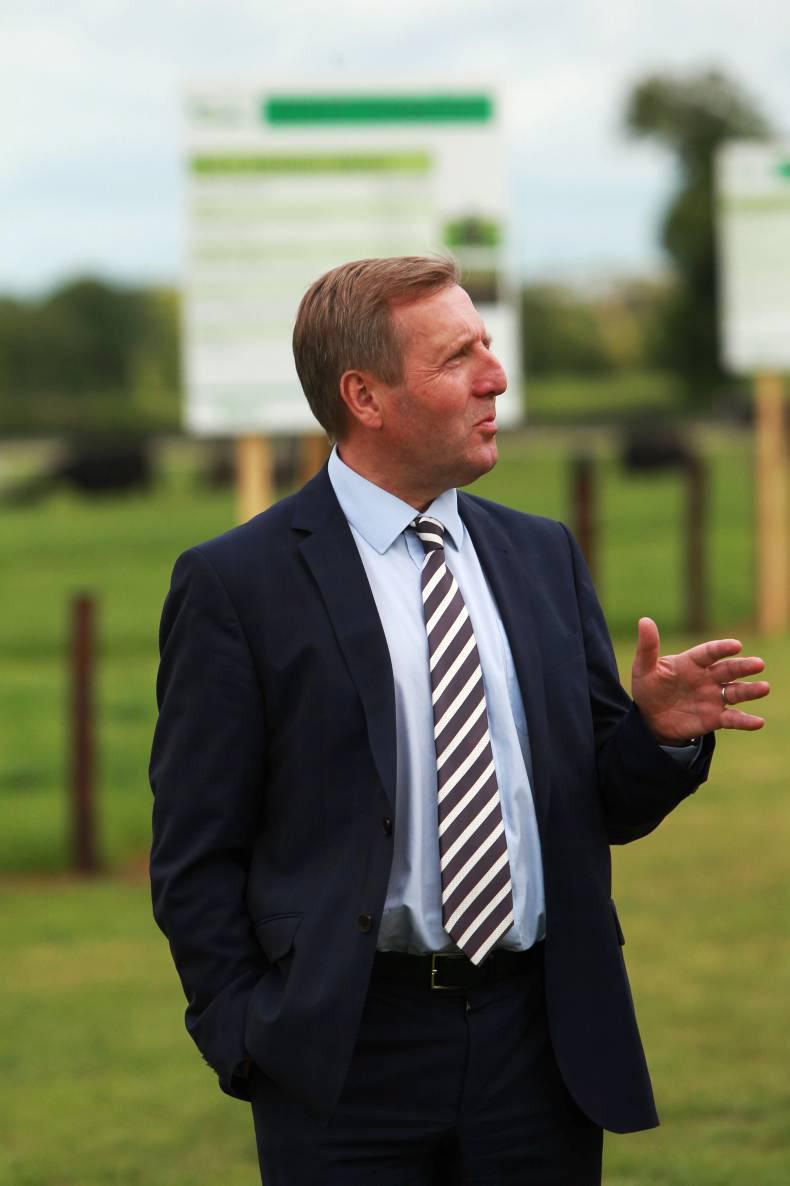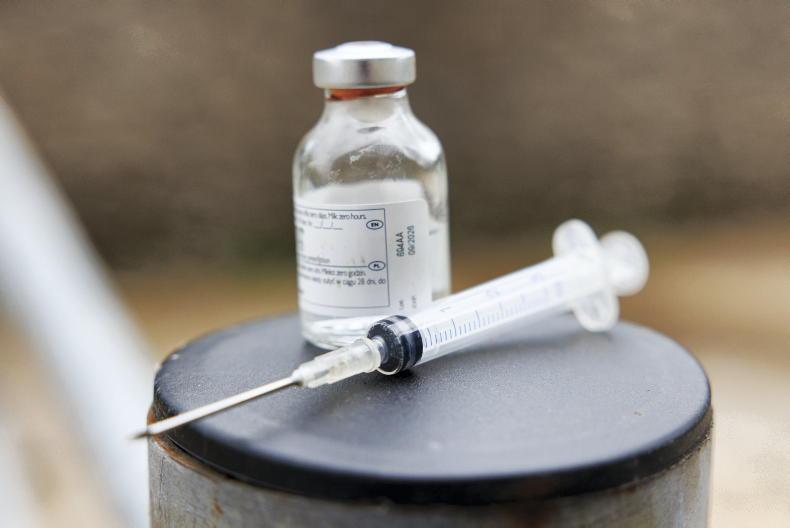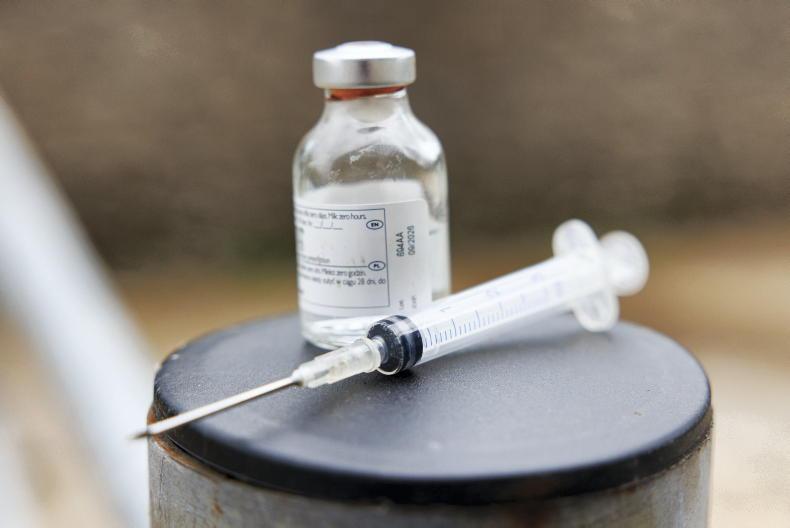We asked the Department of Agriculture Press Office what steps are being taken by Minister for Agriculture, Food and the Marine Michael Creed to deal with the challenge arising from the Brexit referendum.
Minister Creed has identified the challenges that will face Ireland’s farming and food industry following last month’s vote. The most immediate is currency volatility. Future issues will be tariffs and trade; the EU budget; regulations and standards; customs controls and certification.
To deal with these challenges, the minister has:
Established a dedicated unit in the Department of Agriculture to work on Brexit. Established a consultative committee of stakeholders to ensure the necessary exchange of information as the negotiations proceed. Called a special meeting of the Food Wise 2025 High Level Implementation Committee to obtain an immediate response to the UK vote.Established a contact group under the Food Wise 2025 HLIC to ensure that the response of the relevant agencies is coordinated.Asked the Department of Agriculture to feed into the central Contingency Framework being co-ordinated by the Department of the Taoiseach.Dedicated unit
These are the experienced officials who, along with the ministers of the day, will take part in formal negotiations and informal discussions arising from the UK leaving the EU. These will include bilateral (one to one) discussions with the UK but also with other key member states.
Most of these officials are already working in the Department’s trade section and they are actively preparing now for the negotiations which could get under way by the end of 2016.
The unit is headed up by Department assistant secretary general Bríd Cannon.
Consultative committee
The committee brings together a wide variety of the commercial stakeholders involved in farming and the food manufacturing sectors along with the Department of Agriculture and other state agencies. Its aims are:
To ensure the Department and state agencies are aware of and understand the challenges arising from Brexit.To agree how these can be best addressed.To feed information back to stakeholders as negotiations unfold.The stakeholders include the main farm organisations and representatives of the main meat, dairy and other food companies. In addition to the Department of Agriculture, other agencies include Bord Bia, BIM, Enterprise Ireland, Coillte and Teagasc.
Food Wise implementation
This is the body overseeing implementation of the Food Wise 2025 plan for the farming and food sectors. It includes the main State agencies that deal with the food manufacturing sector, including Enterprise Ireland, Bord Bia, Teagasc and Bord Iascaigh Mhara, as well as senior officials from the Departments of Agriculture; Jobs, and Public Expenditure.
Minister Michael Creed chaired a special meeting of the committee on Thursday 30 June dealing with Brexit and its implications for the agri-food sector. It was agreed that a smaller contact group would be established with representatives from the various agencies and the Department of Agriculture which will meet regularly.
We asked the Department of Agriculture Press Office what steps are being taken by Minister for Agriculture, Food and the Marine Michael Creed to deal with the challenge arising from the Brexit referendum.
Minister Creed has identified the challenges that will face Ireland’s farming and food industry following last month’s vote. The most immediate is currency volatility. Future issues will be tariffs and trade; the EU budget; regulations and standards; customs controls and certification.
To deal with these challenges, the minister has:
Established a dedicated unit in the Department of Agriculture to work on Brexit. Established a consultative committee of stakeholders to ensure the necessary exchange of information as the negotiations proceed. Called a special meeting of the Food Wise 2025 High Level Implementation Committee to obtain an immediate response to the UK vote.Established a contact group under the Food Wise 2025 HLIC to ensure that the response of the relevant agencies is coordinated.Asked the Department of Agriculture to feed into the central Contingency Framework being co-ordinated by the Department of the Taoiseach.Dedicated unit
These are the experienced officials who, along with the ministers of the day, will take part in formal negotiations and informal discussions arising from the UK leaving the EU. These will include bilateral (one to one) discussions with the UK but also with other key member states.
Most of these officials are already working in the Department’s trade section and they are actively preparing now for the negotiations which could get under way by the end of 2016.
The unit is headed up by Department assistant secretary general Bríd Cannon.
Consultative committee
The committee brings together a wide variety of the commercial stakeholders involved in farming and the food manufacturing sectors along with the Department of Agriculture and other state agencies. Its aims are:
To ensure the Department and state agencies are aware of and understand the challenges arising from Brexit.To agree how these can be best addressed.To feed information back to stakeholders as negotiations unfold.The stakeholders include the main farm organisations and representatives of the main meat, dairy and other food companies. In addition to the Department of Agriculture, other agencies include Bord Bia, BIM, Enterprise Ireland, Coillte and Teagasc.
Food Wise implementation
This is the body overseeing implementation of the Food Wise 2025 plan for the farming and food sectors. It includes the main State agencies that deal with the food manufacturing sector, including Enterprise Ireland, Bord Bia, Teagasc and Bord Iascaigh Mhara, as well as senior officials from the Departments of Agriculture; Jobs, and Public Expenditure.
Minister Michael Creed chaired a special meeting of the committee on Thursday 30 June dealing with Brexit and its implications for the agri-food sector. It was agreed that a smaller contact group would be established with representatives from the various agencies and the Department of Agriculture which will meet regularly.









SHARING OPTIONS